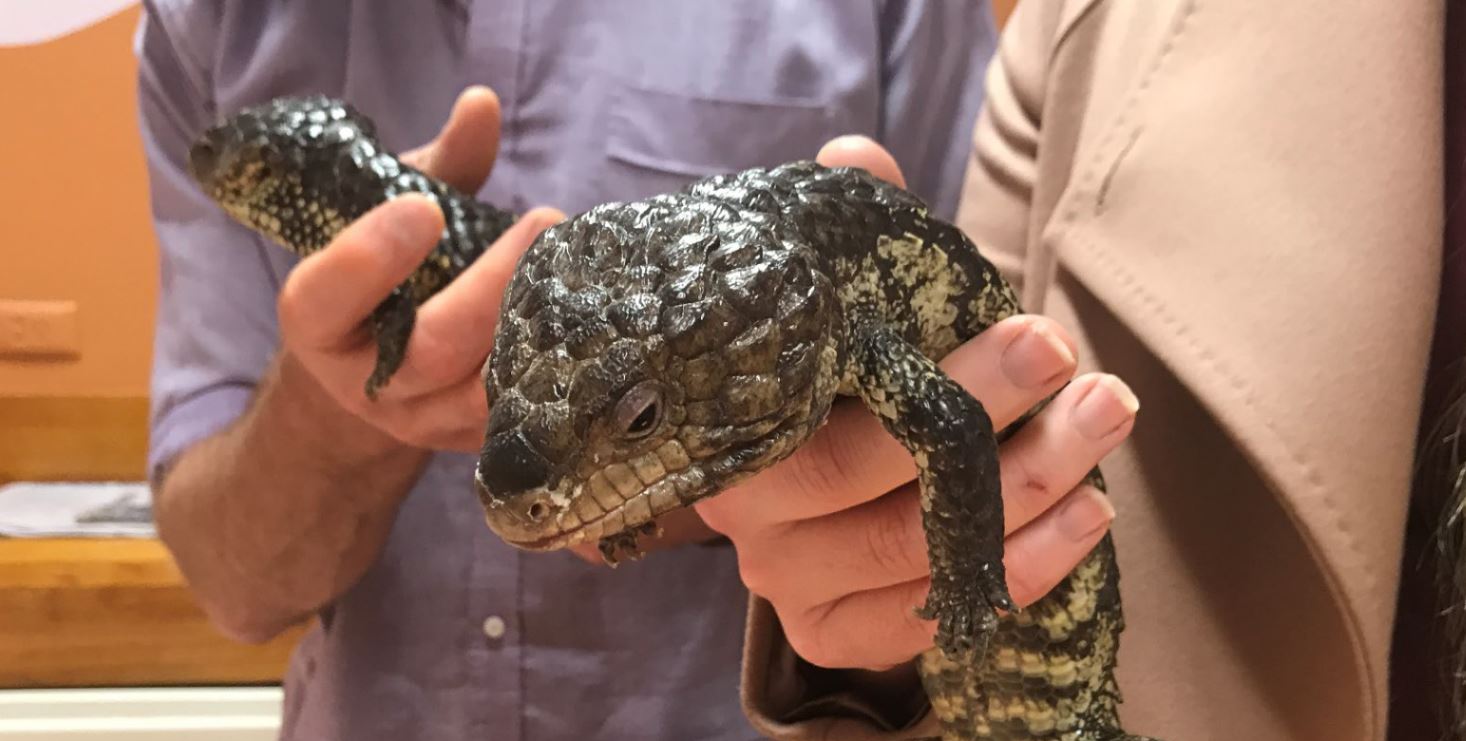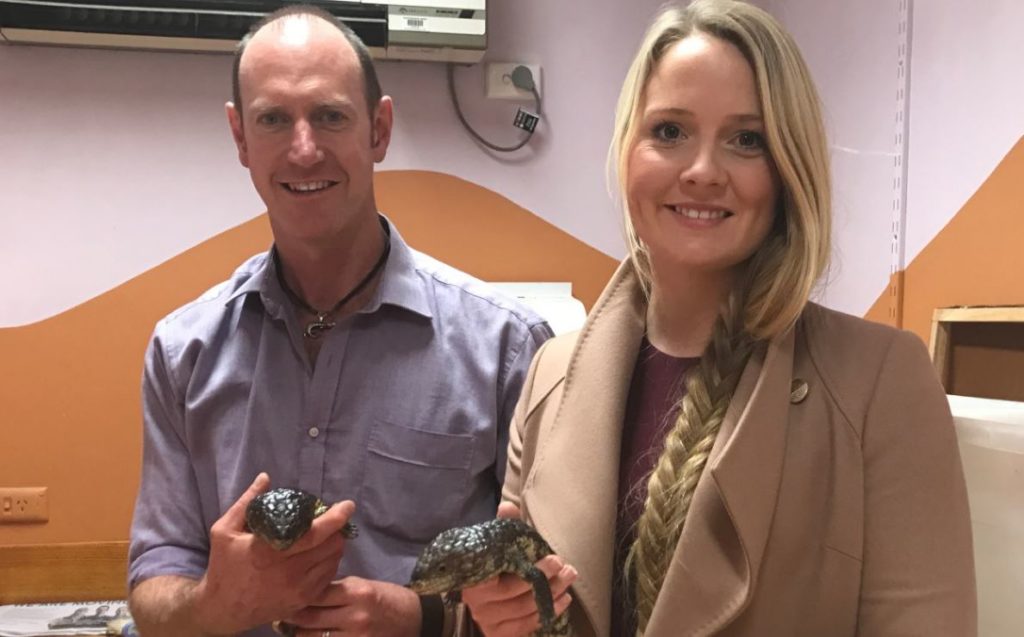
Is there a salmonella infection risk for humans who come into contact with pet lizards and snakes?
While reported cases related to lizards and snakes are relatively few, Flinders University environmental health experts warn that the link may be overlooked and therefore not investigated.
Importantly, they warn the infections linked to lizards or snakes and other squamates tends to be more severe that food-borne salmonellosis.
This put children under five at most risk, with several fatalities reported in children aged less than six months, say Dr Harriet Whiley and Dr Kirstin Ross from Finders University.

“In many published cases, it was noted that the patient was unaware of the risks associated with keeping pet lizards and snakes and did not practise proper hand hygiene after handling the animals or cleaning cages,” says Dr Whiley.
The researchers, including Flinders University reptile scientist Associate Professor Mike Gardner, say the research has followed an increase in human interaction with squamates, particularly lizards and snakes, in many countries around the world.
“In several cases there was no report of the infected child coming into direct contact with the snake or lizard which supports the theory that improper hand hygiene may have allowed the salmonella to spread from the lizard or snake cage to humans,” Dr Whiley says.
People who handle captive or wild snakes or lizards should thoroughly wash their hands with hot, soapy water.
Preschool children and older people with weakened immune systems should avoid contact with snakes and lizards.
Pet snakes and lizards should also not be allowed to roam through a house or living area, and should be kept out of kitchens to prevent contamination.
Material in vacuum cleaners was also identified as a source of salmonella from lizards and snakes.
“No one knows what role wild lizards play in human salmonellosis and although studies have demonstrated wild lizard carry the bacteria there is limited information demonstrating the potential for this to spread to humans,” Dr Whiley says.
“A review of the literature available highlights the need for more education to inform the public on ways to reduce the risk of salmonellosis from pet squamates.
“And further research is needed investigate the role of wild squamates in the spread of human salmonellosis, both directly and indirectly through cross-contamination.”
Reference: Whiley, H., Gardner, M.G. and Ross, K., 2017. A Review of Salmonella and Squamates (Lizards, Snakes and Amphibians): Implications for Public Health. Pathogens, 6(3), p.38.http://www.mdpi.com/2076-0817/6/3/38
Flinders University will celebrate the lifetime research effort by the late Flinders Professor Mike Bull, at a symposium on Friday 6 October entitled ‘Lizard Social Behaviour, Conservation and Host Parasite Ecology: 300 papers and Mike Bull.’ Honoring the research and mentorship of Professor Bull will be speakers including Professor Corey Bradshaw (Flinders), Dr Geoff White (University of Tasmania), Professor Andy Sih (University of California, Davis), Dr Steph Godfrey (University of Otago, NZ) as well as students and other researchers. More information here

